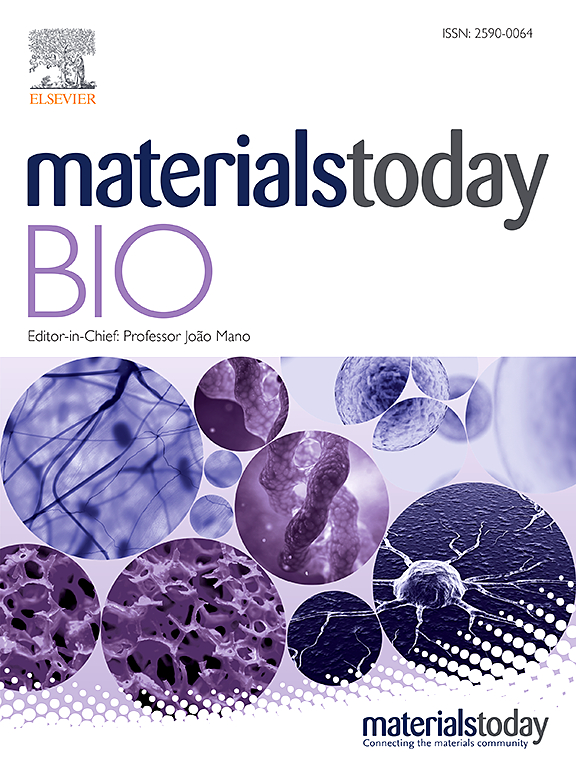Nanohybrid-enabled smart platforms for biostimulation and immunoengineering of plants
IF 8.7
1区 医学
Q1 ENGINEERING, BIOMEDICAL
引用次数: 0
Abstract
Conventional agricultural practices have become increasingly impractical due to their high inefficiency and overuse, posing serious threats to ecosystem stability and health. Nanohybrids refer to a class of composite materials comprised of nanomaterials combined with diverse materials, including inorganic, polymeric, or biological materials, resulting in hybrid structures with unique functional features such as greater mechanical strength, catalytic activity, and biocompatibility, thus providing advanced frameworks with a vast variety of applications in the agriculture sector. Nanohybrids can augment the functional capabilities of plants, such as photosynthesis and stress tolerance, enabling crops to thrive under diverse climatic conditions. Additionally, nanohybrid-based agricultural practices can improve growth and productivity of crops by providing them with essential nutrients in a more controlled and precise manner. Importantly, nanohybrid-based systems can shield plants against biotic (pest and pathogen attacks) and abiotic (drought, salinity, temperature, and pH etc.) stressors by activating sophisticated, interconnected, and intricate antioxidative or genetic defense responses. Here, we provide a critical overview of nanohybrid-enabled strategies for improving agriculture practices and plant health under biotic and abiotic environmental challenges. We also highlight the transformative potential of nanohybrid-based smart agrochemicals for developing sustainable and eco-stable agricultural systems, thereby ensuring global food security.
用于植物生物刺激和免疫工程的纳米混合智能平台
由于效率低下和过度使用,传统农业方法越来越不实用,对生态系统的稳定和健康构成严重威胁。纳米杂化材料是指一类由纳米材料与多种材料(包括无机材料、聚合物材料或生物材料)结合而成的复合材料,其杂化结构具有独特的功能特征,如更高的机械强度、催化活性和生物相容性,从而为农业领域提供了广泛应用的先进框架。纳米杂交种可以增强植物的功能能力,如光合作用和抗逆性,使作物能够在不同的气候条件下茁壮成长。此外,基于纳米杂交的农业实践可以通过以更可控和精确的方式为作物提供必需的营养物质来改善作物的生长和生产力。重要的是,基于纳米杂交的系统可以通过激活复杂的、相互关联的和复杂的抗氧化或遗传防御反应来保护植物免受生物(害虫和病原体)和非生物(干旱、盐度、温度和pH等)的胁迫。在这里,我们提供了一个关键的概述纳米杂交技术在生物和非生物环境挑战下改善农业实践和植物健康的策略。我们还强调了基于纳米混合的智能农用化学品在发展可持续和生态稳定的农业系统方面的变革潜力,从而确保全球粮食安全。
本文章由计算机程序翻译,如有差异,请以英文原文为准。
求助全文
约1分钟内获得全文
求助全文
来源期刊

Materials Today Bio
Multiple-
CiteScore
8.30
自引率
4.90%
发文量
303
审稿时长
30 days
期刊介绍:
Materials Today Bio is a multidisciplinary journal that specializes in the intersection between biology and materials science, chemistry, physics, engineering, and medicine. It covers various aspects such as the design and assembly of new structures, their interaction with biological systems, functionalization, bioimaging, therapies, and diagnostics in healthcare. The journal aims to showcase the most significant advancements and discoveries in this field. As part of the Materials Today family, Materials Today Bio provides rigorous peer review, quick decision-making, and high visibility for authors. It is indexed in Scopus, PubMed Central, Emerging Sources, Citation Index (ESCI), and Directory of Open Access Journals (DOAJ).
 求助内容:
求助内容: 应助结果提醒方式:
应助结果提醒方式:


